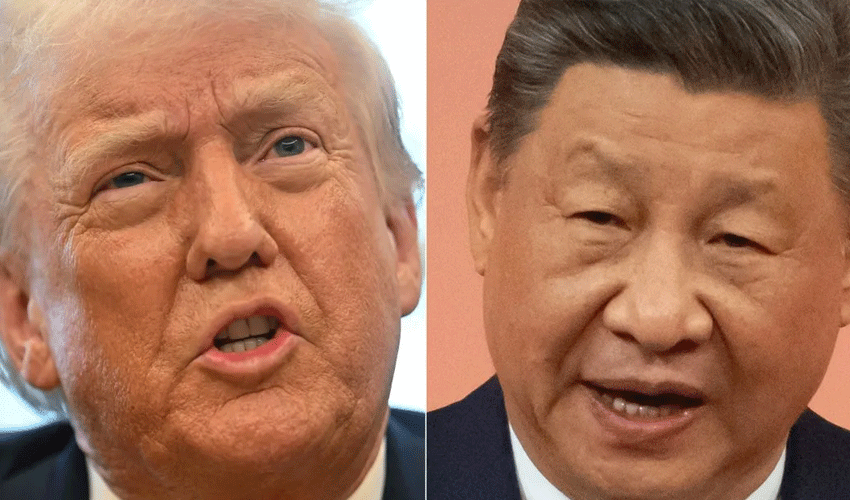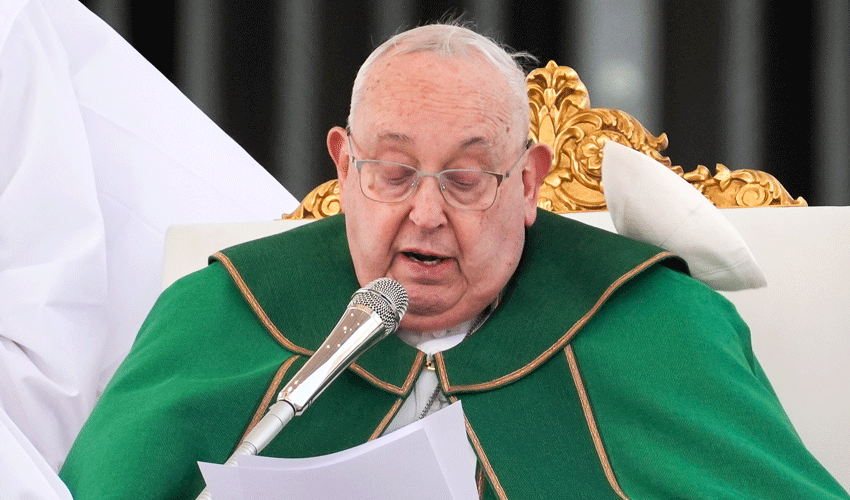US President Donald Trump on Wednesday signalled a potential shift in his administration’s trade policy towards China, stating that the high tariffs imposed on Chinese goods “will come down substantially, but it won’t be zero.”
The remarks, made during a White House press briefing, appeared to mark a rhetorical softening in what has been a prolonged and bruising trade war between the world’s two largest economies. “145% is very high and it won’t be that high,” Mr Trump told reporters in the Oval Office. “It’ll come down substantially.”
The comments followed statements earlier in the day by Treasury Secretary Scott Bessent, who said the current tariff regime was unsustainable and suggested that a “de-escalation” of tensions was likely in the near future. Mr Bessent made the comments during a closed-door session at an investment conference hosted by JP Morgan Chase, according to individuals familiar with the proceedings.
Markets responded positively to the signals of easing tensions, with Wall Street rallying sharply. The S&P 500 gained 2.5 per cent, buoyed by hopes that the trade deadlock, which has disrupted global supply chains and fuelled fears of a global recession, might be easing. Asian markets followed suit on Wednesday, with Hong Kong’s Hang Seng Index rising 2.5pc, while Japan’s Nikkei 225 and South Korea’s Kospi advanced 2pc and 1.5pc, respectively.
Since 2018, the US and China have imposed tit-for-tat tariffs in an escalating dispute over trade imbalances, intellectual property theft, and national security concerns. Mr Trump’s imposition of up to 145pc tariffs on Chinese goods was met with reciprocal 125pc duties by Beijing on US exports. In recent months, China also added several US firms to its “unreliable entities list” and curbed exports of critical minerals used in electronics and military equipment.
The Chinese government has so far maintained a defiant posture. Officials in Beijing have repeatedly stated that negotiations must be conducted on “equal footing,” with mutual respect and reciprocity. A source familiar with Beijing’s stance told CNN that while China remains open to talks, it is concerned about what it perceives as inconsistent signals from the Trump administration.
Despite the economic hostilities, Mr Trump has insisted that he maintains a “very good relationship” with Chinese President Xi Jinping. “We’re going to be very nice. They’re going to be very nice, and we’ll see what happens,” he said. “Ultimately, they have to make a deal, because otherwise they’re not going to be able to deal in the United States.”
In contrast to his combative Cabinet members, Mr Trump played down suggestions that the US would press China on other contentious issues such as the Covid-19 pandemic. “No,” he said when asked if such topics would be raised. “We want them involved. I think we’re going to live together very happily and ideally work together.”
In China, Mr Trump’s remarks quickly trended on the social media platform Weibo, with some users interpreting them as a sign of retreat. State-run China Daily described the comments as emblematic of the Trump administration’s “populist protectionism” that has destabilised international trade norms.
The White House, however, maintains that the goal is not decoupling but rather a “rebalancing” of trade. Mr Bessent is reported to have told investors that the aim is not to cut ties with China but to secure fairer terms. “Neither side thinks the status quo is sustainable,” he was quoted as saying.
While Mr Trump has signalled some willingness to ease tariffs on China, he has shown no inclination to roll back the broader 10pc tariff applied to other trading partners. Negotiations with nations such as Japan, India, South Korea, Canada, and the European Union remain ongoing.
Beijing, meanwhile, has stepped up pressure on third countries. According to The Korea Economic Daily, some South Korean firms received letters from Chinese authorities warning of possible “retributions” if they exported goods containing Chinese rare earth elements to US military contractors.
Despite the simmering tensions, the Trump administration claims to have received 18 proposals for new trade deals. White House Press Secretary Karoline Leavitt said: “Everyone involved wants to see a trade deal happen.”
Nonetheless, uncertainty continues to grip financial markets, compounded by Mr Trump’s repeated calls for the Federal Reserve to cut interest rates. Although he has previously suggested firing Fed Chair Jerome Powell, Mr Trump appeared to soften that stance as well, stating that he wanted Powell to act early but had no plans to remove him.


























